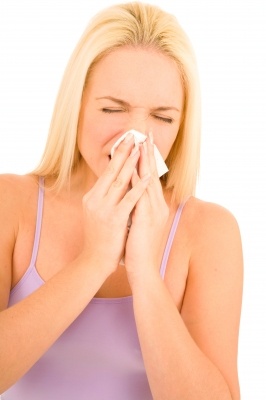
Tomorrow, December 22nd is the official first day of winter, and while I love winter, I’m kicking off winter with a reminder of the flu season. It’s difficult to live life to the fullest when you are sick, so take some preventative measures and prevent yourself and your kids from getting sick this flu season. The flu season has been slow so far this year – so the worst is most likely ahead us.
According to the
CDC (Center for Disease Control and Prevention) flu seasons can not fully be predicted. Flu epidemics happen every year, but the timing, severity, and length of the epidemic depends on many factors, including what influenza viruses are spreading and whether they match the viruses in the vaccine. The timing of flu is very unpredictable and can vary from season to season. Flu activity most commonly peaks in the U.S. in January or February.
Most Common Questions about Cold & Flu Answered
Here are some of the most common questions about flu and cold answered by Dr. Sezelle Gereau Haddon MD from
Continuum Center for Health and Healing, and I hope you will have cold and flu free winter season!
How do viruses typically enter the body? Is there a way to prevent it?
Viruses enter the body through the nose, or mouth. A daily nasal wash can be useful to prevent development of these illnesses, or actually used for treatment once they develop.
Do hand sanitizers work?
Hand sanitizers are wonderful ways to keep from spreading and contracting viral illnesses, and can be used to prevent getting sick, particularly with those in close quarters, but they should not be used to replace hand washing.
When do cold symptoms typically occur for kids and adults? Is there a difference between the two groups?
Cold symptoms usually occur within 2 or 3 days after you came in contact with the virus, although it could take up to a week. You are contagious for this same period of time. There is no difference between kids and adults.
Is there a reason why women are more likely to catch a cold than men?
Women, especially those 20 to 30 years old, have more colds than men, possibly because of their closer contact with children. Many things cause you to be more prone to upper respiratory illness, including stress, fatigue and allergies. Being female in and of itself does not predispose you to it.
What are some of the best ways to fight off a cold before it gets to you?
Many things can be done to prevent full development of cold symptoms, but have to be instituted early on. These include rest, stress reduction, increased fluid intake and certain supplements. We are not sure why all of them work, but they support normal function of the immune system in various ways.
Against the common belief, vitamin C doesn’t seem to be the answer when it comes to dodging colds. What does work?
An article this summer by the Cochrane collaboration supports the use of Zinc for both prevention and early treatment of symptoms of the common cold. A similar report by the Cochrane database on Vitamin C did not support its use in either treatment or prevention of the common cold.
Would you recommend Zinc for kids? If so, how would a kid take it? How much should kids take? Also, how does zinc help the cold and flu? Does it decrease the duration or symptoms?
Zicam should not be used in the nose, as it causes a loss of sense of smell. Dosages as published by the Mayo Clinic are: “For the common cold, the following doses of zinc have been taken by mouth: 10 milligrams of zinc lozenges 5-6 times daily, based on age; one-half of a zinc lozenge (23 milligrams) (Truett Laboratories, TX), for children under 27 kilograms, every two hours, not to exceed six daily; and zinc gluconate glycine lozenges (Cold-EEZE®) four times daily for the duration of the cold”
There is an old wives’ tale that says to feed a fever and starve a cold but research has shown that’s probably not true. Instead, what can parents do to help their kids feel better when they have the cold or flu? Studies show that chicken soup helps. Why? How much rest and fluids do children need and why do these things seem to help?
Chicken soup has both anti-inflammatory and antiviral effects. Fluids prevent dehydration, so help one feel better. Saline sprays are helpful with moving nasal secretions and with facilitating breathing. Products with Elderberry and Astragalus are made in formulations for children, and can be soothing and help the immune system as well. Rest helps the body recharge, and lessening stress can be beneficial for the innate immune system.
Image: Ambro / FreeDigitalPhotos.net
 Tomorrow, December 22nd is the official first day of winter, and while I love winter, I’m kicking off winter with a reminder of the flu season. It’s difficult to live life to the fullest when you are sick, so take some preventative measures and prevent yourself and your kids from getting sick this flu season. The flu season has been slow so far this year – so the worst is most likely ahead us.
According to the CDC (Center for Disease Control and Prevention) flu seasons can not fully be predicted. Flu epidemics happen every year, but the timing, severity, and length of the epidemic depends on many factors, including what influenza viruses are spreading and whether they match the viruses in the vaccine. The timing of flu is very unpredictable and can vary from season to season. Flu activity most commonly peaks in the U.S. in January or February.
Tomorrow, December 22nd is the official first day of winter, and while I love winter, I’m kicking off winter with a reminder of the flu season. It’s difficult to live life to the fullest when you are sick, so take some preventative measures and prevent yourself and your kids from getting sick this flu season. The flu season has been slow so far this year – so the worst is most likely ahead us.
According to the CDC (Center for Disease Control and Prevention) flu seasons can not fully be predicted. Flu epidemics happen every year, but the timing, severity, and length of the epidemic depends on many factors, including what influenza viruses are spreading and whether they match the viruses in the vaccine. The timing of flu is very unpredictable and can vary from season to season. Flu activity most commonly peaks in the U.S. in January or February.
 Tomorrow, December 22nd is the official first day of winter, and while I love winter, I’m kicking off winter with a reminder of the flu season. It’s difficult to live life to the fullest when you are sick, so take some preventative measures and prevent yourself and your kids from getting sick this flu season. The flu season has been slow so far this year – so the worst is most likely ahead us.
According to the CDC (Center for Disease Control and Prevention) flu seasons can not fully be predicted. Flu epidemics happen every year, but the timing, severity, and length of the epidemic depends on many factors, including what influenza viruses are spreading and whether they match the viruses in the vaccine. The timing of flu is very unpredictable and can vary from season to season. Flu activity most commonly peaks in the U.S. in January or February.
Tomorrow, December 22nd is the official first day of winter, and while I love winter, I’m kicking off winter with a reminder of the flu season. It’s difficult to live life to the fullest when you are sick, so take some preventative measures and prevent yourself and your kids from getting sick this flu season. The flu season has been slow so far this year – so the worst is most likely ahead us.
According to the CDC (Center for Disease Control and Prevention) flu seasons can not fully be predicted. Flu epidemics happen every year, but the timing, severity, and length of the epidemic depends on many factors, including what influenza viruses are spreading and whether they match the viruses in the vaccine. The timing of flu is very unpredictable and can vary from season to season. Flu activity most commonly peaks in the U.S. in January or February.
